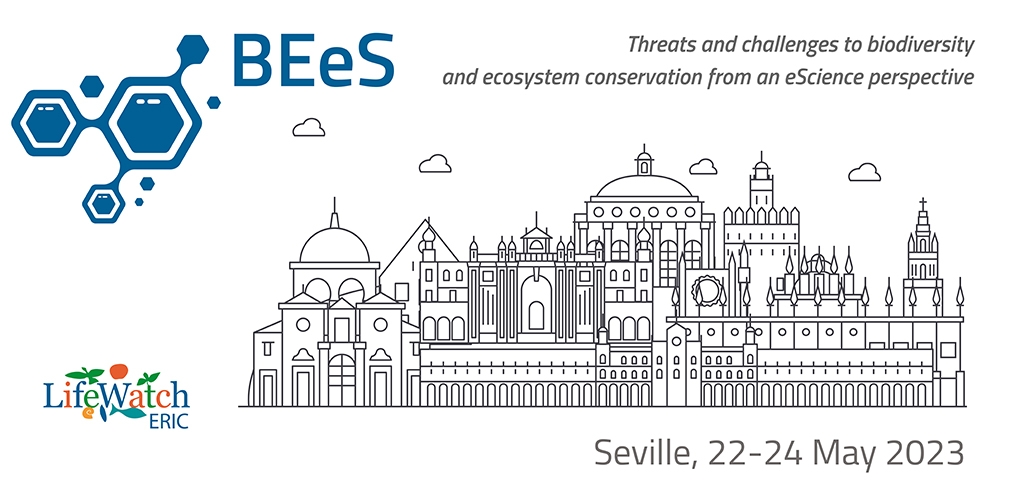
Roll up, roll up! Abstracts are now open for the LifeWatch ERIC “BEeS” Biodiversity & Ecosystem eScience Conference “Threats and challenges to biodiversity and ecosystem conservation from an eScience perspective”, which is scheduled to coincide with Biodiversity Day 2023. Set in Seville, home to the statutory seat and ICT-Core of LifeWatch ERIC, the conference will take place over two and a half days from 22 May.
Interested persons can visit the dedicated minisite which will be regularly updated with information. The LifeWatch ERIC BEeS conference will feature keynote speeches from scientists in the community, and seven different topic plenary sessions will take place featuring submissions from the community on:
- Major threats to the Earth’s biodiversity and ecosystem health
- Macroecological and biogeographical approaches to biodiversity conservation
- Ecosystem and habitat mapping
- Animal biology and behavioural traits
- “System of systems” biodiversity observation
- Biodiversity and ecosystem responses to climate change
- Natural capital and the “One Health” approach
There will also be a round table on the theme of World Biodiversity Day, moderated by LifeWatch ERIC and keynote speakers. Please note that abstract submission will close on 30 April 2023.
While principally aimed at members of the LifeWatch ERIC national nodes, this is also a fantastic opportunity for members of the wider biodiversity and ecosystem research community to meet and get to know each other better face-to-face. Participation in the Conference is free. Sign up now!